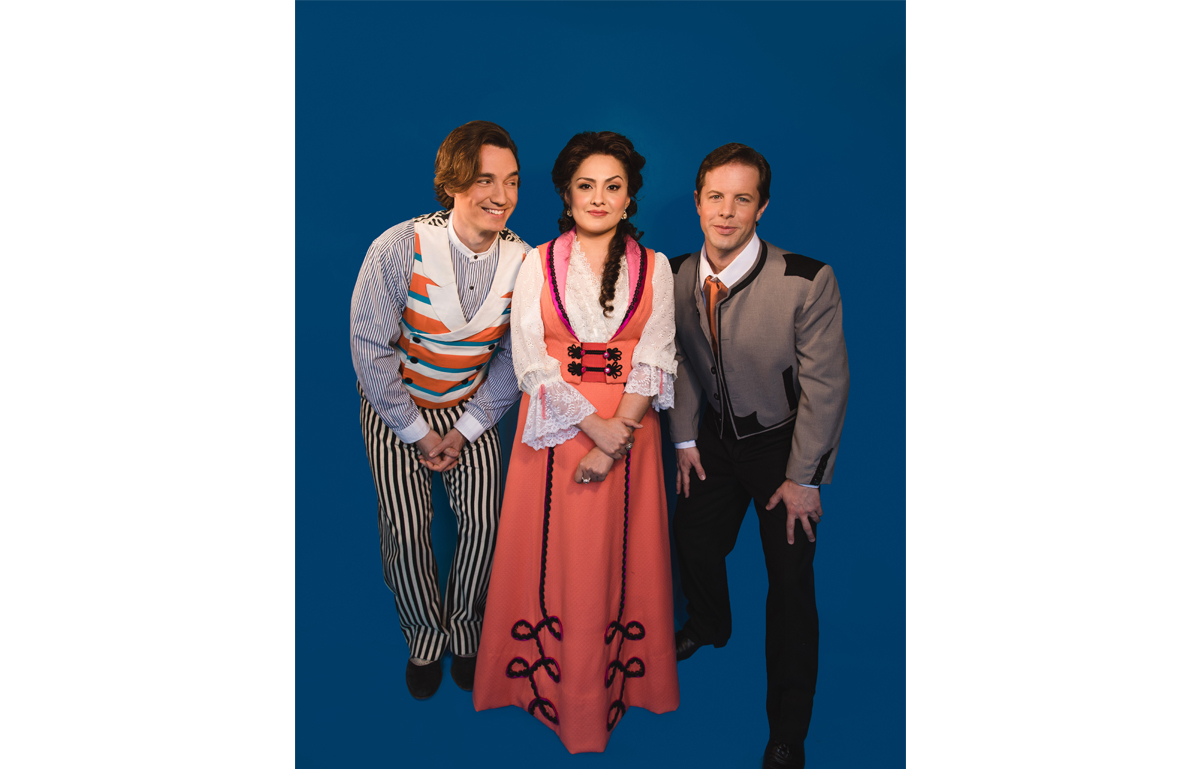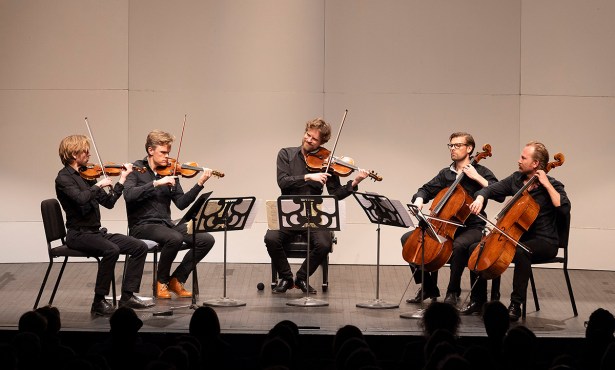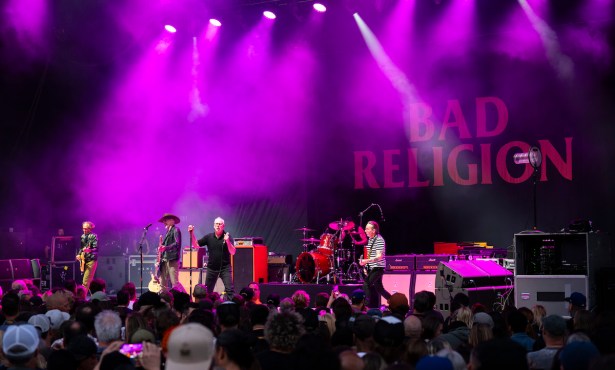Two Operas Hit the Stage: ‘The Barber of Seville’ and ‘Die Fledermaus’
Opera S.B. Presents Rossini’s Classic; Westmont Offers Up Strauss’s Masterpiece

As one natural disaster has followed another, it has certainly been a rough start to the year. We could all use a little frivolity and a few laughs. So in a bit of felicitous timing, Santa Barbara will be treated this weekend to a couple of classic comic capers, both set to sparking scores.
At The Granada Theatre, Opera Santa Barbara will stage Rossini’s The Barber of Seville; a few blocks away, at the New Vic, Westmont College will present Johann Strauss’s Die Fledermaus. Both are among the most often performed works of the musical theater repertoire, and for an obvious reason: They’re enormously entertaining.
“This show works — almost always,” said Los Angeles–based opera director Josh Shaw, who is staging The Barber of Seville for the professional company. “But I think it can be nonstop laughing if you do it right. My challenge is to fill those moments that could drag, to fill in the gaps between the parts we know are going to be funny, and make those funny as well,” he continued. “I don’t want to give away too much, but there is more choreography in this production than you will typically see. There are more hijinks. There’s more of everything. We just had a four-hour rehearsal, and the performers weren’t sitting still for a second.”
It sounds like he’s taking the lyrics to the work’s most famous aria — “Figaro here, Figaro there, Figaro up, Figaro down” — pretty darn literally.
Barber, composed in 1816, is essentially the prequel to Mozart’s The Marriage of Figaro. In it, we meet the latter’s Count Almavina and his wife, Rosina, during the much happier courtship phase of their relationship, when the count is forced to use subterfuge to get Rosina away from her guardian, who wants to marry her himself.
Die Fledermaus, which premiered in 1874, is arguably the masterpiece of the composer known as the waltz king of Vienna. Filled with infectious tunes, it tells the story of an elaborate and, arguably, cruel practical joke. It’s also a surprisingly scathing portrait of a bored and callous upper-class society.
“The music is intact, but we’ve taken the book scenes — which tend to be pretty wooden — and concentrated the action,” said director John Blondell. “We’ve made it more concise, compact, focused. We’ve condensed it quite a lot, to the point where it’s almost all sung. We took an operetta and turned it into an opera! On one level, you can just go and be delighted,” he added. “On another level, though, there are some deeper and darker things inside. Everything is built on lies — many, but not all, of which get exposed at the end. It raises questions about marriage, about domestic life, about trustworthiness. People battle with feelings they don’t want to have but have nonetheless. We get to watch the characters deal with that in many of the numbers.”
Shaw faces a similar challenge with Barber: making sure all the characters are at least somewhat likable, even those who are behaving in arguably abominable ways. “The acting style is larger-than-life,” he said. “The characters are rooted in truth, but I have no problem saying, ‘Let’s just make a joke here.’”
If the jokes aren’t sufficiently distracting, you can always gape at the scenery. “We have a beautiful set from Pacific Opera Victoria [in British Columbia],” Shaw said. “It’s all white, inspired by [the Spanish architect Antoni] Gaudí. The Barbers I’ve done before have been set in the current day. This one is set around the year 1900 — Gaudí’s time. But it’s pretty stylized.”
In contrast, the sets and costumes of Fledermaus are “more contemporary,” Blondell said. “The look of the party scene is inspired by haute couture and the Met Gala. The biggest challenge was where to put the orchestra. The New Vic has a pit, but it’s very small — not big enough for our 17-piece orchestra. So the orchestra will be onstage. It’ll be integrated into the visual scene in three different ways in the three different acts.”
So there will be much to listen to and look at. Think about? Not so much. “More often than not, I try to speak to current-day events when I do an opera,” Shaw said. “But this time, I just want people to come and have a good time. Come to the opera; sit back; don’t worry about what’s going on in the world for two and a half hours. Let’s laugh and enjoy some amazing singing.”
Blondell put it slightly differently: “This is a good time to go to the theater and have a romp.”
4·1·1
Opera Santa Barbara presents The Barber of Seville Friday, March 2, 7:30 p.m., and Sunday, March 4, 2:30 p.m., at The Granada Theatre (1214 State St.). Tickets are $29-$214. Call 899-2222 or see operasb.org. Westmont College presents Die Fledermaus Friday, March 2, 7 p.m., and Sunday, March 4, 7 p.m., at the New Vic (33 W. Victoria St.). Tickets are $9-$14. Call 965-5400 or see newvictheater.com.



